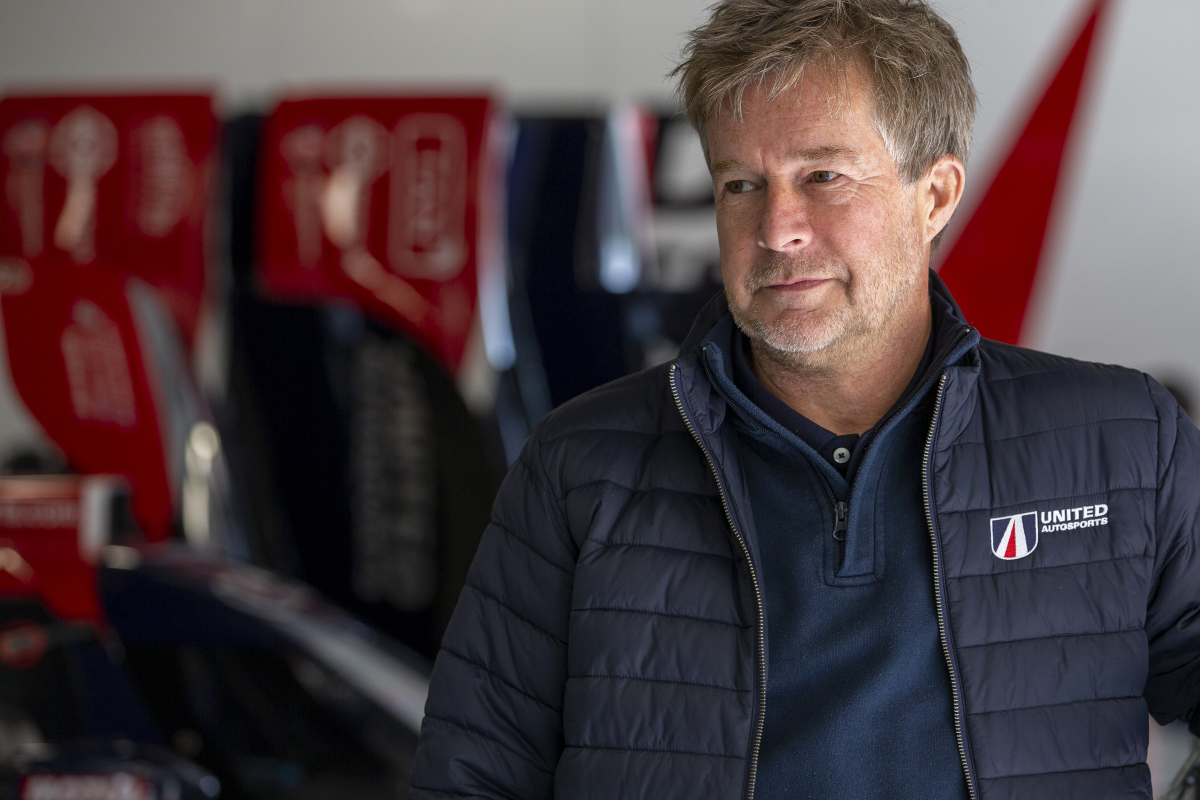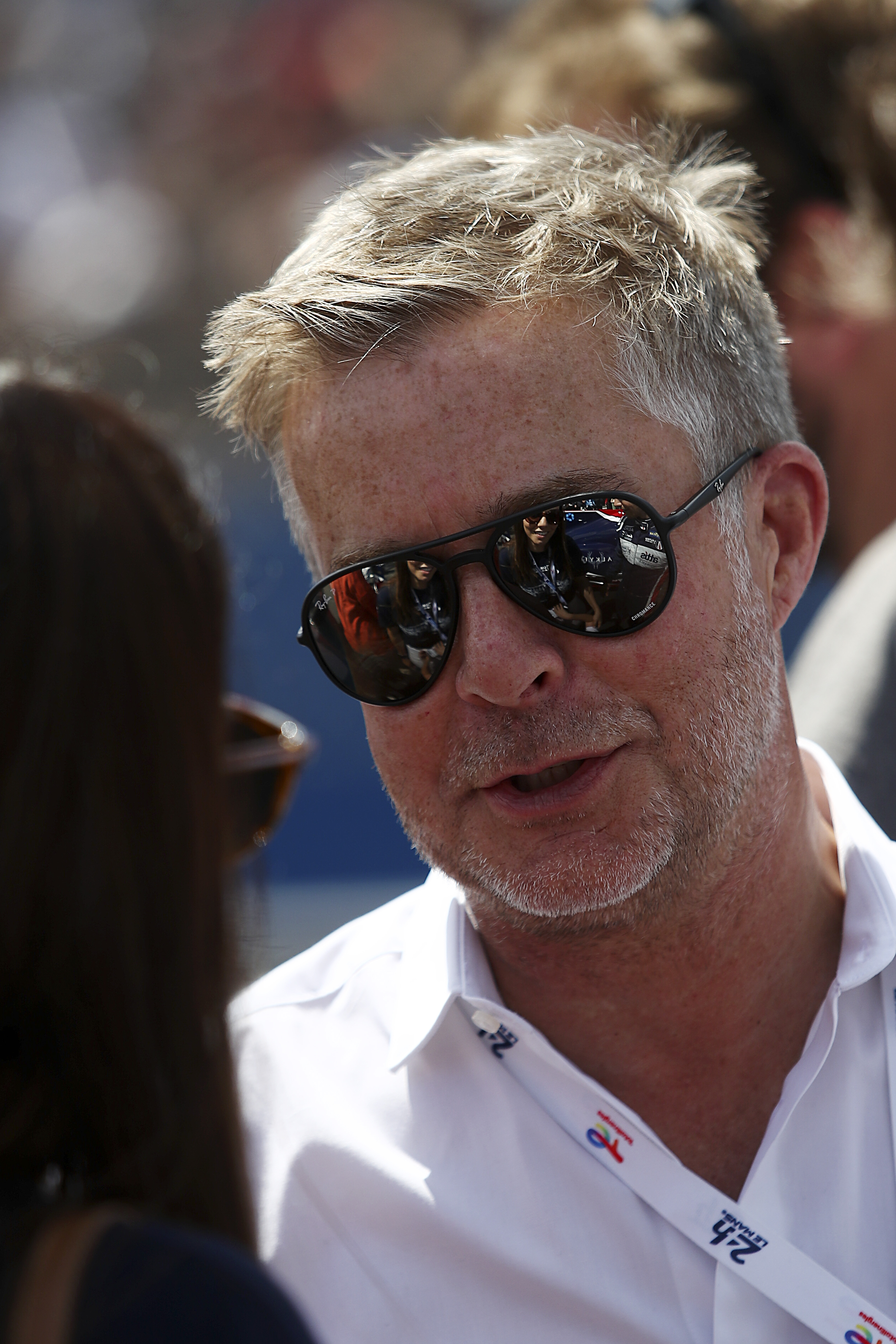
United Autosports USA team boss Richard Dean gives his thoughts on his racing in Japan...

Dean, spent the period between 1992 and 1995 racing in Japan where he competed in F3, Touring Cars, GT and F3000 races
He drove for the Team Le Mans, Team 5Zihen and Tomei teams in that time, winning in F3 and becoming a well-known Gaijin driver alongside the likes of Rickard Rydell, Mauro Martini, Roland Ratzenberger, Sascha Maassen and Michael Krumm.
Here he recalls his time in Japan as he gets set to return to Fuji International Speedway for the next round of the FIA World Endurance Championship.
What do you call about racing in Japan? And what was the camaraderie like between drivers back then?
“I suppose the first thing that comes to mind is the professionalism of racing in Japan. When you've been racing in Europe as I had been in Formula Three and Formula 3000 in Europe, you think that is the pinnacle, and the ultimate outside of Formula One.
‘Going to Japan was a surprise in how professional, not just the the drivers are and the teams, but also how good the circuits were.
“So, it was a lot higher standard. That's the thing I remember about being there, that the standard was really high. The camaraderie between drivers, I remember that it was sort of split into two groups - the local drivers or Japanese drivers naturally tended to be in their own group and the Western guys who were who were racing over in Japan full time, would all stick together and most of them lived in Gotemba.
“In between races, we did all get together, and I remember feeling that when I first arrived there it was a bit like the first day in a new job where you don't know anybody and you're a bit intimidated, but it didn't take long for that camaraderie to build.
“Everybody spent a lot of time together, not everybody stayed in Japan between races, but the ones that did we always had plans and we travelled to the circuits together and we will playing squash and training and having days out and tourist stuff in between races as well. So, it was a really good time.”
Why did you decide to race in Japan?
“The honest reason is probably not one that people initially want to hear about why I went to Japan. I had sort of run out of options in in Europe and hit a bit of a brickwall.
“I'd done F3 and F3000 so in terms of my career trying to make that next step was difficult. It wasn't really on their mind initially, but I got an opportunity to go and do a test in Japan with the Le Mans company in F3, they were the Reynard importers for Japan. It felt like a bit of a lifeline, and a new chapter, a new opportunity, a new adventure. I'd run out of options in the UK and in Europe. That's sort of what prompted me and actually, it turned out to be the best thing I'd done.”

Did you live in Japan? If so, where and how different was it to your upbringing in the UK?
“I did live in Japan, I arrived in late 1992. I stayed through 1993 and 1994 and a little bit of 1995. I also commuted a little bit back to see family and during that period my daughter was born. She was born in the UK, so I came back, obviously, for family reasons, but I called Japan home for that three years. It couldn't have been more different to my upbringing in the UK and initially it was very much a culture shock.
“Having run a Formula Ford team and a Formula Vauxhall Junior team back in the in the 90s when I came back from Japan, we had some Japanese drivers that came over to us and raced for us and I could see exactly the same thing for them. I could see how different and difficult it was for the Japanese drivers to come to Europe, not just language and food and culture and how different the racing was and life was, and that was exactly the same for me. But I would say the first month was a shock, I think the first two months I was questioning the sanity of my decision to be there.
“After six months, I started to think that I'd made the right choice and not long after that I absolutely loved it and my biggest regret is actually coming back too early we should have really continued there and pushed on.
“We're all wiser now and knowing what I know now, it was such an amazing life such an amazing opportunity. I loved living there loved the people loved everything about it and its really fun fond memories for me."
What did you make of the level of competition there at that time? Was it more difficult to take on the locals?
“It's another thing that was a surprise to me. You go there with a certain level of belief in your ability and probably some arrogance about what you're going to expect. I didn't think Japan was going to be as intense. I didn't think the competition was going to be as tough.
“You sort of feel that you're going to be taking on the name drivers that you know, some of the Western drivers who were over there. My time was with Tom Kristensen, Rickard Rydell, Sasha Maassen and Warren Hughes who were some really good drivers.
“You think they are going to be a competition, and the bit that really surprised me was how good the local drivers are there too. You don't expect it because you don't really come across too many as you racing in the junior series in Europe. But when you go there, you realise the level that they're at and the dedication, the commitment is just as strong as any anybody else that you came up against.
“It was very, very difficult. Then obviously, their local knowledge of circuits just sort of gave them that edge that you had to overcome. So, it was tough, but that's what made it fun.”
What standout memories do you have from racing in Japan?
“I think my first race in Formula 3 at Suzuka I got pole position, that is a great standout memory. Also winning in Suzuka too and standing on the podium with a very good friend who I have kept in touch with - Sascha Maassen, and we were teammates, and we stood on the podium together which was nice.
“Also, Michael Krumm, who was a very good friend. Racing against those guys, and obviously Tom Kristensen is also a good memory too.”
What do you recall of racing at Fuji?
“Every race at Fuji was an adventure because the weather conditions were constantly changing. You could turn up at the track and it'd be fog and sun and rain.
“There was one race, it must have been my first year there in 1993 and it was in absolutely torrential rain. I remember driving around thinking they're going to stop this and they didn't and it seemed that that was just normal for the locals.
“You could barely keep the car on the track. Fuji always throws up something different and when you look at the history of Fuji, when I was watching in Formula One as a kid it's such an unpredictable circuit, which is what makes it unique, fun and such a challenge.”